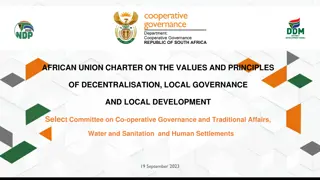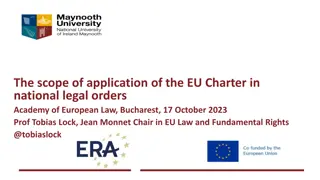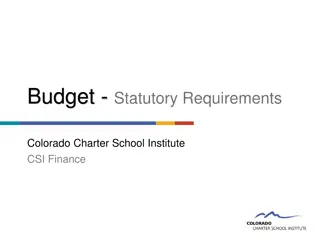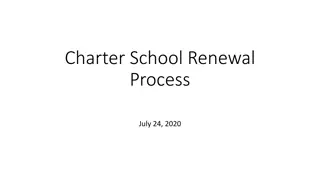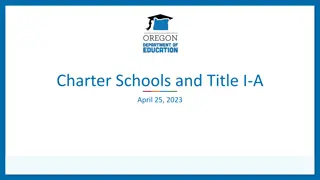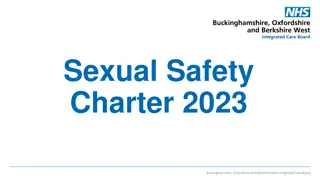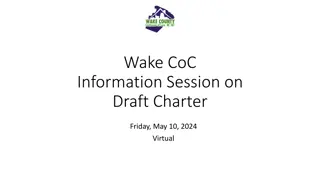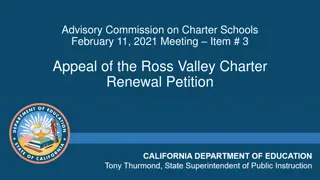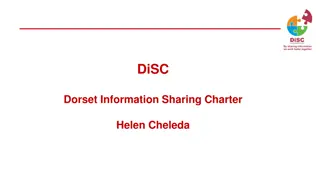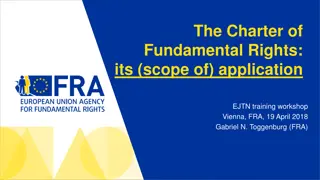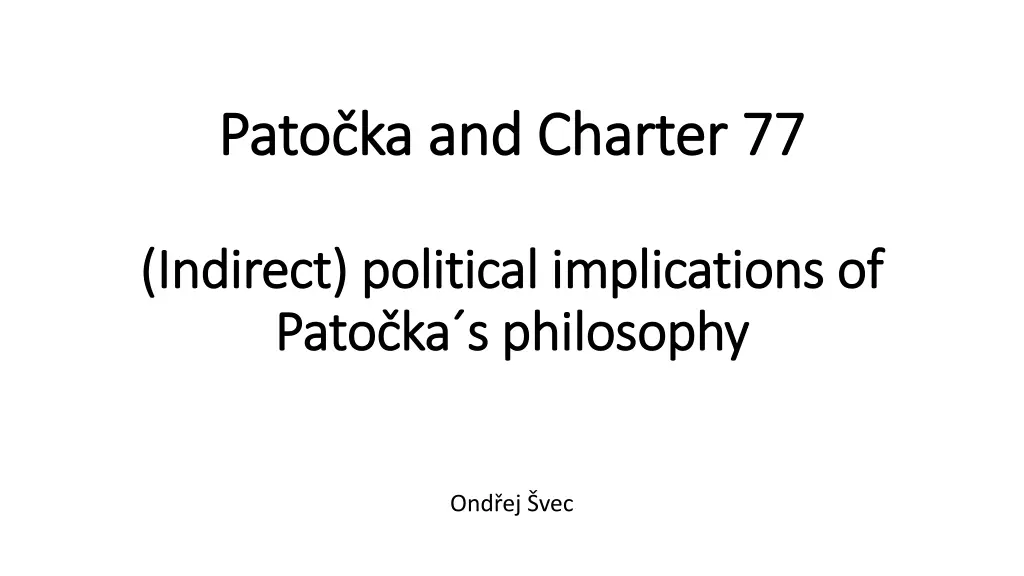
The Complex Relationship between Philosophy, Politics, and Dissidence in Charter 77 Movement
Explore the intertwined dynamics of philosophy, politics, and dissent during the Charter 77 movement, examining the philosophical foundations for political action and the divide between philosophers and politicians. Reflect on the implications of Vaclav Patoka's philosophy within the specific context of 1977, shedding light on the connections between morality, legality, and dissent in a totalitarian regime.
Download Presentation

Please find below an Image/Link to download the presentation.
The content on the website is provided AS IS for your information and personal use only. It may not be sold, licensed, or shared on other websites without obtaining consent from the author. If you encounter any issues during the download, it is possible that the publisher has removed the file from their server.
You are allowed to download the files provided on this website for personal or commercial use, subject to the condition that they are used lawfully. All files are the property of their respective owners.
The content on the website is provided AS IS for your information and personal use only. It may not be sold, licensed, or shared on other websites without obtaining consent from the author.
E N D
Presentation Transcript
Patoka and Charter 77 Pato ka and Charter 77 ( (Indirect) political implications of Indirect) political implications of Pato ka Pato ka s philosophy s philosophy Ond ej vec
Political context Pato ka banned from teaching from 1939-1945, from 1951 and 1967, and then from 1972 onward. In the 1970 s, Pato ka lectured in the informal underground university, His Heretical essays (and much of his other collected papers) transcribed by his students and distributed in typescripts (samizdat). In January 1977, at the request of Vaclav Havel, Pato ka became one of the original signatories and main spokespersons for the Charta 77 Two essays : The Obligation to Resist Injustice, in Jan Pato ka, Philosophy and Selective Writings, p. 340-343 What We Can and Cannot Expect from Charta 77, Ibid., p. 343-347. He was repeatedly questioned by the police during the two months preceding his death. After an interrogation sustained for eleven hours, P. died of a brain hemorrhage on March 13, 1977.
Philosophical Context In the first text accompanying The Charter 77, Pato ka spoke of a need to accept a certain risk out of respect for what is higher in humans. The Obligation to Resist Injustice , p. 343. However, one can wonder why Pato ka didn t engage sooner in political matters? Why did he, for the most of his life, evacuated political thinking from his work?
The complex relation between philosophy and politics Can philosophy be applied to influence politics? Should philosophers strive to influence politics? Are politicians bound by moral standards, or is it enough if they act within the space of legal constraints, if they remain within the boundaries of law? What is the philosophical foundation for dissidence and political action (in the specific context of 1977)?
The divide between the communities of philosophers and the communities of politicians Levinas: Politics is opposed to morality, as philosophy to naivet (1969, 21). Only during periods of historical crisis, philosophy and politics tend to converge. During the crisis, politics requires to appeal to the intellectual resources of the philosophical questioning. Pressing political problems force philosophers to attempt to find practical yet moral answers to these problems. the merging of philosophy and politics. More specifically, the following action arises : What grounds the legitimacy of dissidence and political action aiming to reverse the current state of affairs?
The The spirit spirit and and the the c cases ases of civil of civil desobedience desobedience In 1846, David Thoreau refused to pay the tax because of his opposition to the Mexican American War and slavery, In 1848, Thoreau delivered lectures on "The Rights and Duties of the Individual in relation to Government", explaining why and when one is obliged to Civil Disobedience . Gandhi: nonviolent civil disobedience led India to independence US Civil rights movement (1954-1968), Martin Luther King: a sit-in at lunch counters, a freedom ride into Mississippi, a peaceful marches in Albany, Georgia, a bus boycott in Montgomery (Alabama). All these are outgrowths of Thoreau's insistence that evil must be resisted and that no moral man can patiently adjust to injustice. (The Autobiography of Martin Luther King, Jr.) professed refusal of a citizen to obey certain laws, demands, orders or commands of a government.
Pecualirities of Czechoslovakias Charter 77 dissident movement 1) Charter 77 ironically reverses the plot of typical civil desobedience and claims that it is the government that is not respecting its laws and commitments. Charter 77 used legal arguments to demand that the Czechoslovak government honor its signature on the Final Act of the 1975 Helsinki Covenant on Human Rights. 2) Charter 77 explicitly stated its nonpolitical nature. the signatories claimed to remain within the bounds of law (which prohibited the establishment of political organizations outside the Communist-led National Front ). the petition had to unite signatories who had little in common in terms of political goals to be achieved the signatories searched for a pre-political philosophical grounds for a radical alternative to the contemporary regime and its oppressive character.
Charter 77 as a Human-rights movement 1) the explicit acceptance of risk there are things for which it is worthwhile to suffer, namely those which make life worthwhile. 2) the appeal to moral imperative to resist injustice Without something worthwhile to take a risk, all our arts, literature, and culture become mere trades leading only from the desk to the pay office and back. What We Can and Cannot Expect from Charta 77 , p. 346. 3) the protest justified by reference to human rights. The idea of human rights is nothing other than the conviction that even states, even society as a whole, are subject to the sovereignty of moral sentiment: that they recognize something unconditional that is higher than they are, something that is binding even on them, sacred, inviolable. The Obligation to Resist Injustice, p. 341




